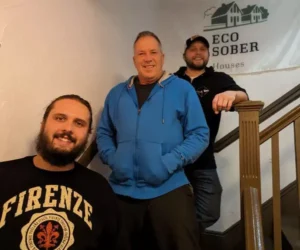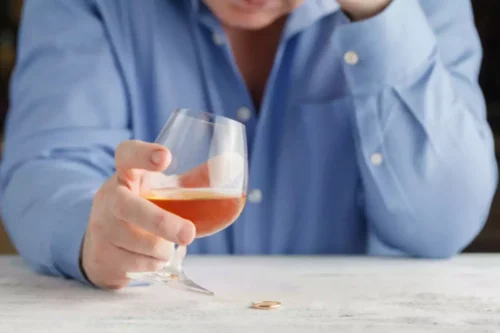
Families can assist by setting clear boundaries, facilitating access to resources like continuing care programs, and encouraging the person in recovery to take on responsibilities at their own pace. This supportive independence is crucial for building the individual’s confidence family support in addiction recovery in their ability to lead a fulfilling life post-recovery. At the same time, knowing the family is there to back them up offers a safety net, making the daunting task of navigating sobriety outside the structured environment of treatment centers more manageable.

What Is The Role Of Family In Addiction Recovery?
The stigma around addiction can often make families feel ashamed, leading them to isolate themselves. They might minimize contact with friends or the community for fear of judgment and discrimination. https://ecosoberhouse.com/ For example, children may have to take on parental roles to take care of a parent struggling with addiction. A lack of positive references and having a criminal record typically pose challenges.
Professional Family Screening
Through RECO Intensive’s unique approach to fentanyl addiction treatment, we see the importance of addressing not just the individual’s struggles but also the collective pain, easing the family’s journey toward healing and understanding. However, currently there are no empirically supported RSS approaches or programs in which families are systematically recruited to serve as instrumental supports for ongoing youth-focused recovery activities. Because of the high risk of overdose among youth who misuse opioids, along with well-documented barriers to engaging youth in MOUD services (Hogue et al., 2021), it is important to develop novel strategies for involving families in MOUD. One promising family-oriented innovation is the Youth Opioid Recovery Support (YORS) intervention (Fishman et al., 2020; Wenzel & Fishman, 2020).
Top 10 Mental Health Services by RECO in 2024
Meghan is currently working as a Peer Recovery Support Specialist for WEConnect Health Management. Her focus as an advocate is on Harm Reduction and ending the racist War on Drugs. She spends most of her free time exploring the Catskill Mountains foraging for edible/medicinal mushrooms and plants, and spreading the message of radical compassion through Harm Reduction. Since 2010, she has been a NYS OASAS Educational Training Provider, and in 2014 became a TOT (Train the Trainer) for Connecticut Community for Addiction Recovery (CCAR). Lila is a Certified Addiction Recovery Coach (CARC) and a Certified Recovery Peer Advocate (CRPA).

- Adjacent to the above, family issues can significantly contribute to the perpetuation of active addiction.
- She was also responsible for supervising the agency’s Consumer Directed Personal Assistant Services (CDPAS) program which serves over 350 individuals across 5 counties.
- They calculated a small effect size that endured up to 12–18 months post-treatment and translated to a 5.7% reduction in SU frequency—the equivalent of approximately three fewer weeks per year of SU.
- Families should see themselves as integral parts of the recovery ecosystem, each bringing unique strengths and perspectives to support their loved ones.
- For those in recovery and beyond, a support system can help keep you on a well-balanced path in a number of ways.
Laguna Treatment Center offers the option of family therapy via telephone or Skype. Recognizing the ripple effects of addiction on the entire family, it becomes evident that family involvement is not only beneficial for the individual but also for the collective well-being of the family unit. As such, we strongly advise you to seek resources, professional help, and community support to navigate the complexities of addiction and ensure the best possible outcomes for your loved ones. Your family members can also encourage you to practice healthy lifestyle habits as part of your recovery.


Application Process
- This foundational understanding paves the way for empathy, de-stigmatizing the condition, and fostering a supportive environment conducive to healing.
- Nevertheless, experts see relapse as an opportunity to learn from the experience about personal vulnerabilities and triggers, to develop a detailed relapse prevention plan, and to step up treatment and support activities.
- To do so, the integration of family support is a crucial component of comprehensive addiction treatment programs.
- Family members may feel frustration as the adolescent skips school, gets poor grades, or befriends other teens who abuse drugs.
- Attendees include a mix of individuals and family members in recovery,program administrators and directors, clinical staff, peer professionals,as well as other recovery allies.
- SMART Recovery Family & Friends meetings are a dedicated space for those with loved ones who are struggling with addiction.
